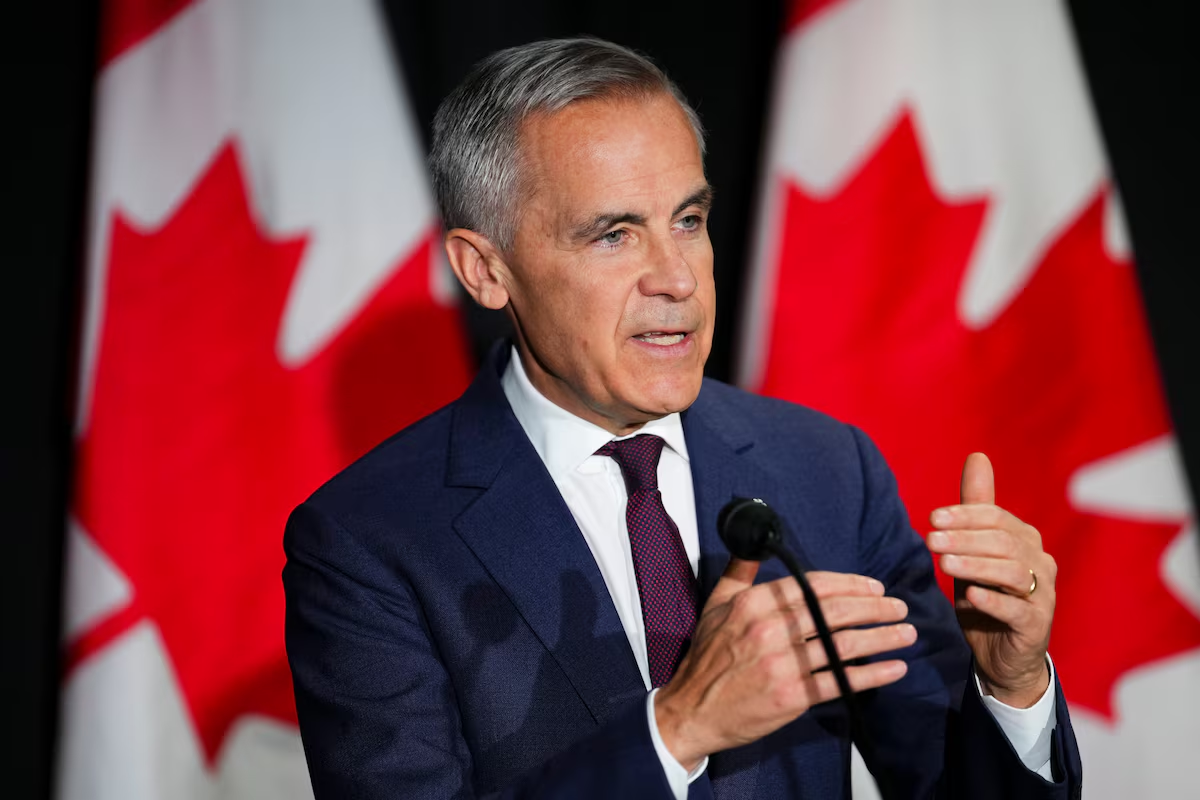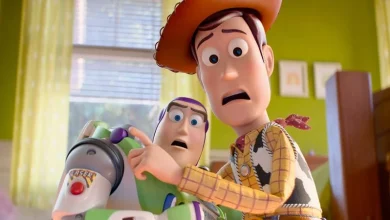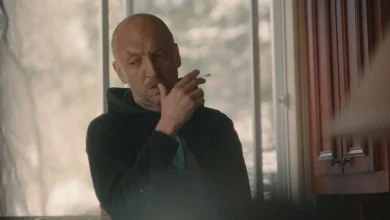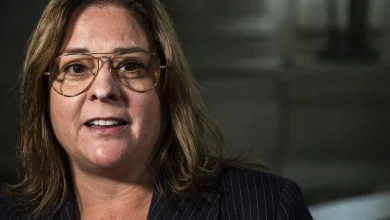No more feminist foreign policy, Carney says

Open this photo in gallery:
Prime Minister Mark Carney at a press conference in Johannesburg on Sunday during the G20 conference. Mr. Carney has backed away from the feminist policies of his Liberal predecessor, Justin Trudeau.Sean Kilpatrick/The Canadian Press
Prime Minister Mark Carney, backing away from a key international priority of his Liberal predecessors, says his government does not have a feminist foreign policy.
Cabinet ministers under former prime minister Justin Trudeau announced in 2017 that their government had a feminist foreign policy, and they continued to refer to the policy for years after. Their support deepened further in 2020 when the government promised to draft a full document to define the policy.
But despite years of backroom discussions by federal officials, no document was ever published. And now Mr. Carney is distancing himself from the concept.
G20 leaders release declaration on climate change and debt, defying U.S. pressure
Issues such as gender equality and reducing gender-based violence are an “aspect” of his government’s foreign policy, he told a press conference in Johannesburg on Sunday. “But I wouldn’t describe our foreign policy as feminist foreign policy,” he said.
His statement is in sharp contrast to many years of rhetoric from Mr. Trudeau’s foreign affairs ministers, including Chrystia Freeland and François-Philippe Champagne, who spoke often of Canada’s feminist policies on international issues.
“Canada is proud to have a feminist foreign policy, not because it looks good, but because it produces tangible and measurable results,” Mr. Champagne said in a speech in February, 2020.
In one key element of the policy, the Trudeau government introduced a feminist foreign-aid strategy in 2017, promising that at least 95 per cent of Canada’s bilateral foreign aid projects would include the goals of gender equality and empowerment of women and girls.
Mr. Carney, however, has placed less emphasis on feminist policies.
In his mandate letters to his post-election cabinet ministers this year, he did not make any reference to feminism or gender equality. He has not named a successor to Canada’s first ambassador on women, peace and security, Jacqueline O’Neill, whose term ended in March, six years after Mr. Trudeau appointed her to the post.
Carney says G20 joint declaration ‘has weight,’ as Trump skips summit
Mr. Carney was in Johannesburg this weekend to attend the summit of the Group of 20 world leaders, the first ever held on African soil.
In their joint declaration at the summit, the G20 leaders made repeated references to gender-related issues, a top priority of the host country, South Africa.
U.S. President Donald Trump boycotted the summit and refused to allow any of his top officials to attend, after repeating his false allegations that South Africa is “slaughtering” its white minority.
Mr. Trump has also abandoned other multilateral groups and agreements, including the World Health Organization and global climate treaties. And his administration strongly objected to the G20’s joint declaration this weekend.
Mr. Carney, asked whether multilateralism is in trouble in the Trump era, noted that the joint declaration had been supported by every G20 leader who attended the summit.
“That is a consensus of governments representing three-quarters of the world’s population, and two-thirds of the world’s GDP,” he told the press conference. “That consensus, that statement, has weight.”
He also noted that South Africa had persuaded dozens of leaders from outside the G20 to attend the summit as guests. “I believe we had 62 leaders around that table, and that’s multilateralism,” he said.
“I think collectively we’ve made a lot of progress. I’m not going to oversell it, because there are big challenges to multilateralism, we all know that. And the nature of that is in flux.”
Prime Minister’s first visit to sub-Saharan Africa since taking office
Mr. Carney, in his first visit to a sub-Saharan African country as Prime Minister, announced that his government is launching talks with South Africa on a potential Foreign Investment Promotion and Protection Agreement to help create a stronger investment climate.
He said Canada had completed negotiations on a nuclear co-operation agreement with South Africa, and would also receive a South African trade mission next year. And he said he had talked to an African Union leader on Saturday to discuss ways for Canada to engage with the recent African continental free-trade agreement.
He acknowledged, however, that Africa was a lower priority for his government than Canada’s traditional trade partners in Europe, Britain and Mexico, because the rate of return on African trade and investment is likely to be lower.
“Yes, Africa is part,” he said. “Is it the first thing we worked on in terms of priorities? No … Because we have a responsibility to have that highest return.”
Open this photo in gallery:
Mr. Mark Carney is welcomed to the Johannesburg summit by Paul Mashatile, Deputy President of South Africa.Sean Kilpatrick/The Canadian Press
Asked whether he has spoken or messaged with Mr. Trump recently, Mr. Carney said: “I’ve been busy. We’ve been busy. He’s got other things to do.”
He said he will probably talk to Mr. Trump within the next two weeks.
“But I don’t have a burning issue to speak with the President about right now. When America wants to come back and have the discussions on the trade side, we will have those discussions.”





